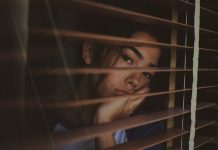
The concept of being “California sober” made headlines earlier this year, when pop star Demi Lovato, who has publicly struggled with addiction, used the term in a CBS Sunday Morning interview, to explain that they were using alcohol and cannabis in “moderation.”
While interpretations vary, “California sober” typically refers to a person who uses cannabis and psychedelics, but avoids harder drugs, like opioids, and alcohol. Andrew DeAngelo, a longtime cannabis and psychedelics activist and co-founder of California’s Harborside Health Center, as well as the Last Prisoner Project — a nonprofit dedicated to social justice reform — describes the concept as an “operating system” that gives people a more flexible approach to intoxication or sobriety. “Like any open-source operating system,” he says, “the end user can tweak it to meet their specific needs.”

DeAngelo has been practicing what he sometimes refers to as “an enlightened, 21st-century self-care strategy” for much of his life but was unaware, until a more recent interview with music and drugs journalist Michelle Lhooq for an article, about the concept of California sober. “It used to be called ‘harm reduction,’” he says. “This is just not as interesting a term for it.”
DeAngelo, a columnist for Playboy and Forbes, says that without weed, he simply wouldn’t write. “The fear and risk are too much,” he says. “[Cannabis] allows me to stop being anxious and self-conscious and to keep my true observer-self in the house, so that I can actually do it.” He doesn’t drink alcohol, but he’s been smoking weed since he was 15 and integrating psychedelics into his health and wellness regime for years. He sees the growing interest in the “California sober” lifestyle as, in many ways, a response to the tragic rise in deaths caused by addiction. “If the goal is to have a meaningful and productive life, you can do that by implementing daily cannabis use and occasional psychedelic use,” he says. “I know, because I’ve done it.”
However, DeAngelo stresses that psychedelics require careful preparation. “People should educate themselves before they try cannabis, let alone psilocybin or some of these other very powerful compounds,” he says. “If you’re going to take something stronger than cannabis, you better have the right mindset and the right physical setting, or you’re going to be very uncomfortable.”
Over the past few years, there has been a nearly constant stream of news about emerging research into therapeutic uses for psychedelics and cannabis. In April, Massachusetts General Hospital, which is an affiliate of Harvard Medical School, announced it was launching a new center to study the clinical benefits of psychedelics in treating mental illness. In July, Field Trip Health, a Toronto-based psychedelic therapy clinic and drug development company, was listed on the Nasdaq Stock Market. And in August, the nonprofit research and educational organization Multidisciplinary Association for Psychedelic Studies was awarded a $12.9 million grant from Michigan’s 2021 Veteran Marijuana Research Grant Program to expand cannabis research for veterans with post-traumatic stress disorder.
DeAngelo says he’s excited about the country’s growing interest and acceptance, but he hopes people have realistic expectations for what some are calling a “psychedelic renaissance.” “There are not [going to be] psychedelic dispensaries where you can buy mushrooms,” he says. “I’m sorry, but society is not ready for that.”
Still, it’s becoming easier for people here in Michigan to explore this approach to mental health and addiction. In 2020, Ann Arbor became the fourth U.S. city to decriminalize entheogenic plants (Merriam-Webster defines an entheogen as “a psychoactive, hallucinogenic substance or preparation, especially when derived from plants or fungi and used in religious, spiritual, or ritualistic contexts”). In January 2021, Washtenaw County Prosecuting Attorney Eli Savit released an official policy directive saying the county would no longer charge cases related to marijuana or entheogenic plant use, possession, or small-scale distribution. In March, the group Decriminalize Nature Michigan launched a statewide campaign to decriminalize psychedelics — something Detroit voters will have the chance to do this November. Introduced in October, by Sens. Jeff Irwin of Ann Arbor and Adam Hollier of Detroit, Proposal E would decriminalize “personal possession and therapeutic use of entheogenic plants,” including psilocybin, peyote, and iboga.
Decriminalization, DeAngelo says, is a critical first step toward broader acceptance. “This is enormously important, because what we need, with psychedelics and cannabis, is wide access for people to choose to interact with these compounds, if they want to,” he says. “It’s called freedom.’”
Suggested Reading
Multidisciplinary Association for Psychedelic Studies (MAPS), maps.org
This Is Your Mind on Plants and How to Change Your Mind, by Michael Pollan
The Psychedelic Explorer’s Guide, by James Fadiman, Ph.D.
DoubleBlind magazine
Decriminalize Nature Michigan, decrimnaturemi.org
This story is featured in the December 2021 issue of Hour Detroit magazine. Read more stories in our digital edition.
|
|
|









